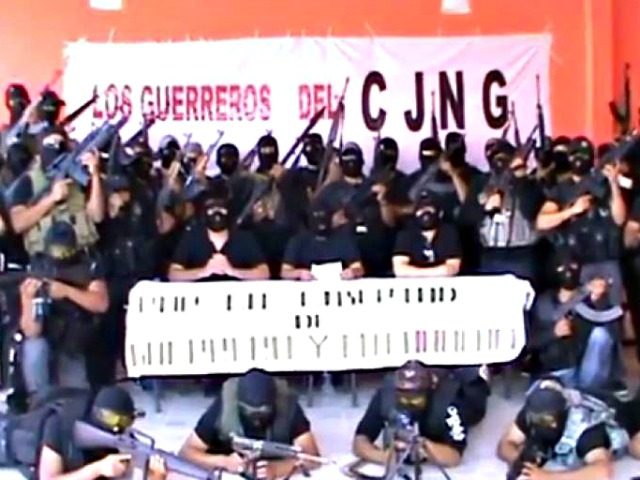Mexico is dealing with a level of cartel violence that directly threatens its national sovereignty and the domestic tranquility of its neighbors. Cartels are known for using tactics equal to some of the worst terrorist organizations in the world–making them far more advanced than traditional organized crime. A primary identifier of a terrorist organization under U.S. law is a discernible ideology. Some experts do not believe the Mexican organizations of interest meet the criteria like seen elsewhere in the world.
One of the pressing issues involving international terrorism is the definition. Many U.S. agencies’ definitions do not coincide. The Department of Defense, FBI, DEA, Homeland Security (DHS), and CIA all have their versions. The State Department, however, is the only agency with the authority to certify the “terrorist” designation under U.S. law.
The regional cartel plazas transitioned from conventional organized crime into an insurgency in 2006. From there, some particular entities morphed into terrorist groups reaching the State Department’s standards as Foreign Terrorist Organizations (FTOs) per se by their actions committed against innocent civilians and political targets. Tactics include mass kidnapping, murder, official assassination, military-grade weapons use, surface-to-air missiles, and car bombs. The car bombs in particular provide a direct link to the longstanding FTO Revolutionary Armed Forces of Colombia (FARC)—whose veteran members are now embedded with organizations like the Cartel Jalisco New Generation (CJNG).
Proponents of the FTO designation usually agree the level of violence perpetrated meets the “terrorist” mark. However, some argue that cartels are typically missing an ideology meant to be enforced as a result of the bloodshed. Instead, they argue that FTO candidates are more focused on territories held by rival groups in effectively lawless lands. At one time, this was true. Things have clearly changed.
Some cartels are damaging the various levels of Mexican governments’ abilities to perform police powers. The combination of high-visibility violence and propaganda left at crime scenes is a well-documented formula to instill fear. Such episodes often trigger official reactions which range from downplaying to righteous indignation. No matter the tone or content of the official response in question—political leaders are always in a reactionary posture.
In the place of a traditional ideology like found in a manifesto or radical interpretation of a religion, cartel messaging is consistent at their scenes of violence: “this is our turf — these [dehumanizing labels for the victims] were in our way — if you don’t want to die too soon like them, you can join us or leave town.” Cartels do not discriminate between fellow criminals, cops, journalists, or politicians. You are either with them or against them. They will, however, sometimes draw a distinction for common civilians—whom they typically do not consider to be threats to their interests. Some cartels will even argue publicly that bloodshed can be in the public interest.
The world observed the Sinaloa Cartel’s level of influence after Ovidio Guzman, an “El Chapo” heir, was arrested in Culiacan several weeks ago. Violence immediately erupted throughout the city, which included blocked roads and burning vehicles. Mexican soldiers and their families were taken hostage and threatened with death if the “Chapito” was not sprung. President Andres Manuel Lopez Obrador (AMLO) released Ovidio Guzman to reduce the risk of losing additional innocent lives, he explained. Here, paramilitary violence reversed a federal arrest operation in a span of hours.
Bottom line, withholding an FTO designation from cartels unless they push an ideology like ISIS or other Middle Eastern groups is fundamentally flawed. Some cartels share distinct similarities at the tactical and operational level with the FARC. Some employ FARC members for training and actual operations. The withholding position begs the question: will particular Mexican cartels deserve the “terrorist” label when they openly prop candidates for political office?
Jaeson Jones is a retired Captain from the Texas Department of Public Safety’s Intelligence and Counterterrorism Division and a Breitbart Texas contributor. While on duty, he managed daily operations for the Texas Rangers Border Security Operations Center.

COMMENTS
Please let us know if you're having issues with commenting.